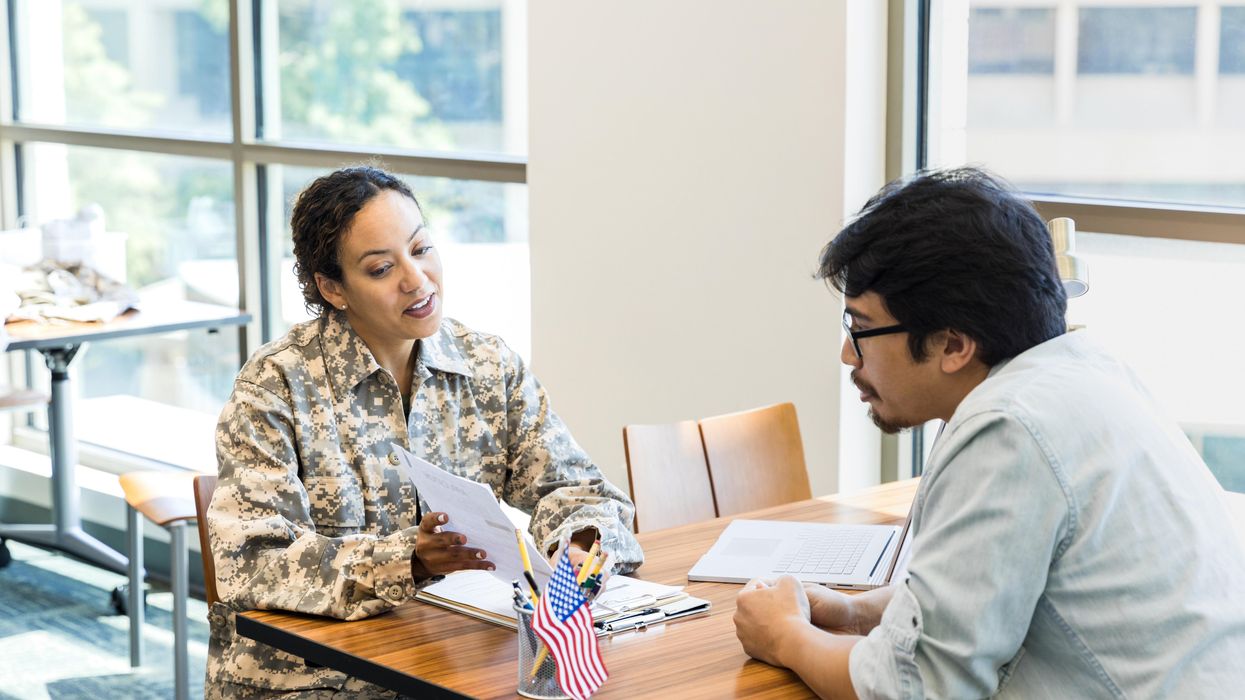Ivey is vice president of legislative affairs and national security for Freedom Technologies, Inc. and a Navy veteran. Nicholson is a government consultant, adjunct professor at Georgetown University Law Center and an Army veteran.
Vice President Harris has been widely criticized for her assessment that “our democracy” presented one of the biggest threats to national security. Perhaps the vice president was more correct than the critics are giving her credit for, but the threat she identified (state laws with the proffered goal of ballot integrity) does nothing to address another insidious harm to democracy demonstrated over the last 20 years.
This past Sept. 11 marked the 20th anniversary of the terrorist attacks on U.S. soil that resulted in almost 3,000 deaths and injuries to several thousand more. Our response to those attacks ushered in the longest uninterrupted period of combat operations in the nation’s history. Yet, although the 9/11 attacks affronted all Americans, only a small percentage of them have sought military service since that tragic day. But beyond the aggressive exercise of presidential war powers across at least four administrations and decades of congressional acquiescence, the people of the United States must also bear some responsibility for their inaction.
The impact of extended deployments and combat operations on military personnel and their families is well documented. Indeed, the current and previous administrations have taken several important steps to support military veterans and their families. Those measures, however, neither absolve the American public from its obligation to participate in a discourse on the appropriate use of military force, nor do they address the increasing attenuation between the American people and the wars fought on their behalf.
In a Nov. 10, 2021, Wall Street Journal opinion piece, H.R. McMaster asked: “If civilian leaders send troops into battle without a commitment to victory, who will sign up to serve? ” Indeed, those who served in support of Afghanistan, Iraq and elsewhere have wrestled with mixed feelings of anger, sadness and futility over the botched withdrawal and subsequent humanitarian crisis. And while an increasingly small percentage of our nation has served in the military, most Americans, regardless of political beliefs or social status, can agree that the haunting images of Afghans desperately clinging to the landing gear of U.S. military aircraft do not reflect our national aspirations.
But McMaster assigns fault too narrowly for our failed military interventions overseas. Much has been written about what went wrong in Afghanistan, Iraq, Guantanamo Bay and elsewhere. Even more has been written about which American president and who in Congress should bear the blame. But accountability goes beyond Presidents Bush, Obama, Trump and Biden or Congress. And if a democratically elected president and Congress are to blame, then we, the people, must share this burden. Democracy not only confers rights, but requires responsibilities. Our national values demand this.
Reflecting on the anniversary of 9/11 and faced with significant national and international challenges, we are presented with an opportunity to rediscover our values and perhaps bridge our divisiveness by making a principled examination of compulsory national service, whether in uniform or in other capacities.
Although compulsory military service (“the draft”) may connect the American public to our war efforts most demonstrably, military leaders historically have resisted the draft as the best means of filling the ranks of a professional force. But compulsory national service differs from a military draft in significant ways. Americans could fulfill service obligations in a range of organizations — in federal, state or local government, with an NGO, or even a public-private partnership — doing something they want to do. Further, much of the unfairness associated with the draft is nullified by compulsory national service because everyone would have to serve.
American public attitudes towards national service are changing. A 2017 Gallup poll revealed nearly half of Americans are in favor of a year of national service — the highest level of public support for universal service in almost two decades. Similarly, a 2021 Voices for National Service poll found 71 percent of young adults (aged 18-24) would consider or have already signed up for AmeriCorps. Beyond the heroics and horrors of war described in Tom Brokaw’s “The Greatest Generation,” a common thread among the Americans profiled in this book was a desire to return home, assimilate into a community, and continue to serve in some meaningful way. Although the rising generation of Americans may not go to war, their sentiments reflect the American desire to serve and be a part of a community.
While the vast majority of Americans may choose not to join the military, opportunity for service abounds. Nationally mandated service with options beyond the armed services would allow a rising generation of Americans to make a difference, develop skills and connect with fellow Americans by supporting a variety of initiatives, whether it be Covid-19 response, teaching in underserved communities, rebuilding the nation’s infrastructure, serving in the Peace Corps, or a number of other worthy endeavors. Perhaps President Biden’s legislative agenda may gain more support by tying certain benefits to a service requirement (such as student loan forgiveness).
With significant global threats emanating from numerous vectors, the next 20 years are poised to bring about a global reckoning. If the United States wishes to remain a world leader — both economically and morally — we have to return to our common values at home. National service could have a unifying effect that our nation needs. We must learn from our mistakes, reconnect with each other, recognize that our similarities exceed our differences, and emerge a version of America that is better equipped to face the challenges before us. We need to return to our values; universal service provides a path to do this.



















Trump & Hegseth gave Mark Kelly a huge 2028 gift